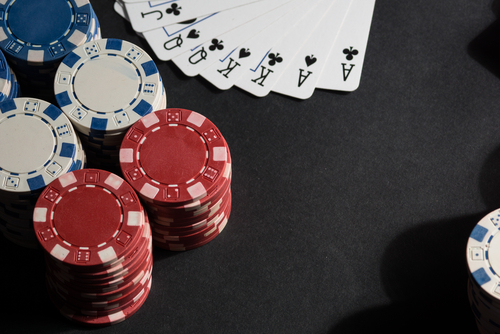Problem gambling can become an issue for anyone. On the occasion where an opportunity arises to gamble, one might spend too much, risk too much, and go home with too little. Due to various circumstances in one’s life they might experience a need to escape and gambling provides that release. However, for a problem gambler, the problem is short lived. For gambling addicts, the problem is long term and gets progressively worse.
Gambling is a process addiction, meaning it is a process the brain becomes addicted to participating in rather than a substance the brain becomes chemically addicted to. Though gambling addiction is not a substance addiction, it acts in the same progressive manner. Addiction is typically characterized by the development of a tolerance, a threshold at which point an addict needs more of their drug of choice in order to achieve a similar or greater high. The reason being that the brain cannot produce dopamine, a pleasure chemical, any longer without the aid of more drugs. Gambling works in a similar manner, except, with gambling addiction, the gambler isn’t looking for a similar or greater thrill. Once gambling addiction takes hold, the stakes continue to get higher.
“Anyone can become a problem gambler but you see the need to replicate the buzz; the adrenaline of gambling occurs an awful lot in certain professions,” one recovering gambling addict explains to The Big Issue. “Sport, for instance, is a high-octane job: short bursts of activity, a winning goal or tackle. You have excess downtime, excess money. You want the adrenaline rush but want to avoid the drink or drug-taking that affects performance. So gambling is what they turn to.” Sports and sports-related jobs can be seen as just a metaphor for gambling addiction. The lure of gambling and placing bets is made more attractive in the way traditional gambling is advertised- thinking blinging sounds, blinking neon lights, and the total stimulation of casinos.
Recovery from gambling addiction is best at the earliest stages of its development. Unlike substance addictions, there aren’t any medications to block the effects of gambling, or medications to help the painful cravings which come with withdrawal. However, through treatment and therapy, recovering from gambling addiction is possible. “There are so many triggers- for some it’s boredom or the need to escape, for some it is triggered by a period of unhappiness or depression,” he explains. Treatment helps gambling addicts discover the underlying causes for their gambling while learning to manage their compulsions.
Gambling addiction can affect life in many of the same devastating ways as drug and alcohol addiction. If you or a loved one are struggling with gambling or any other process addiction, Avalon By The Sea has a residential treatment program for you. For a confidential assessment and more information on our trusted programs for primary mental health care, call 888-958-7511.












